28+ Sample Sharing Agreement
-
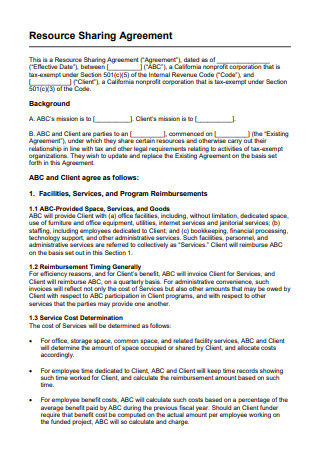
Resource Sharing Agreement
download now -
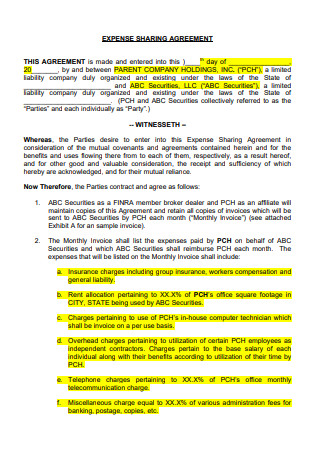
Expense Sharing Agreement
download now -
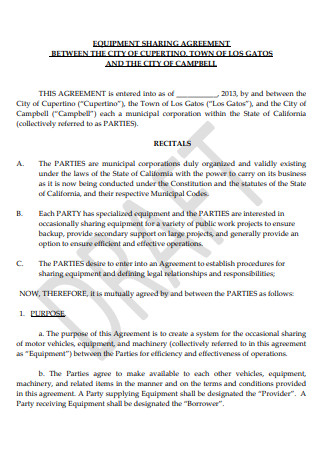
Equipment Sharing Agreement
download now -
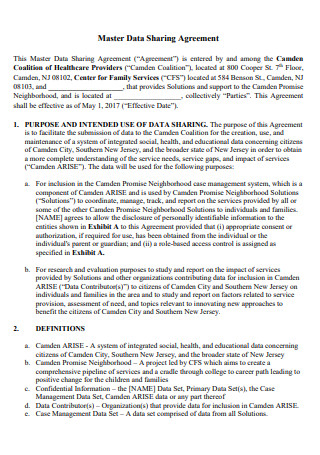
Master Data Sharing Agreement
download now -
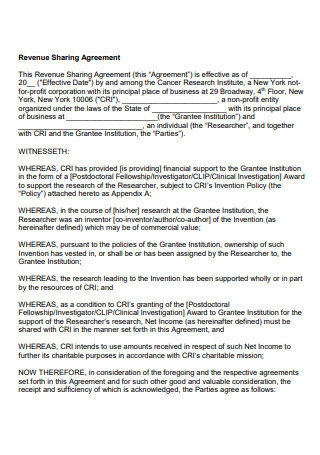
Revenue Sharing Agreement
download now -
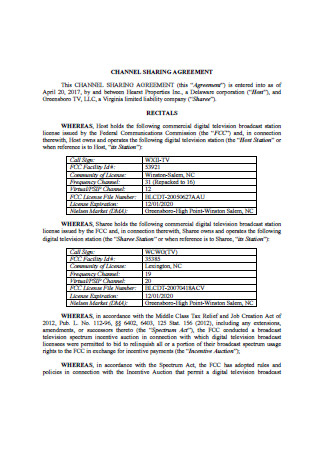
Channel Sharing Agreement
download now -
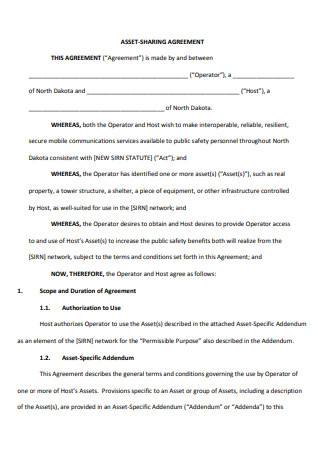
Asset Sharing Agreement
download now -
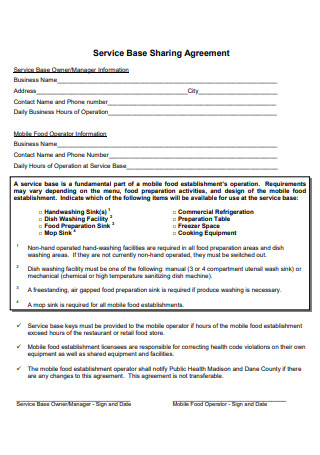
Service Base Sharing Agreement
download now -
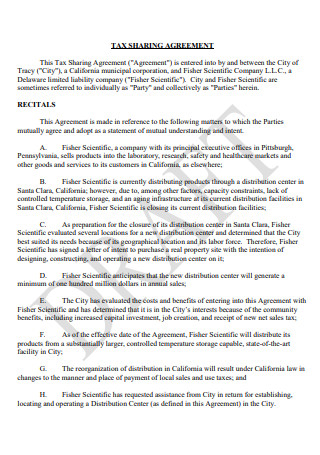
Tax Sharing Agreement
download now -
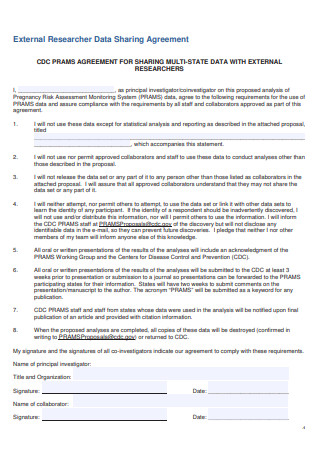
External Researcher Data Sharing Agreement
download now -
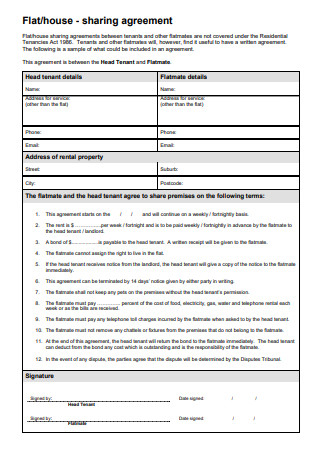
House Sharing Agreement
download now -
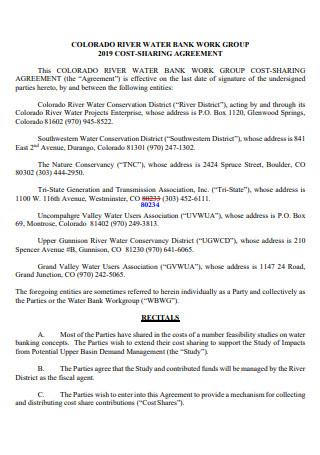
Cost Sharing Agreement
download now -
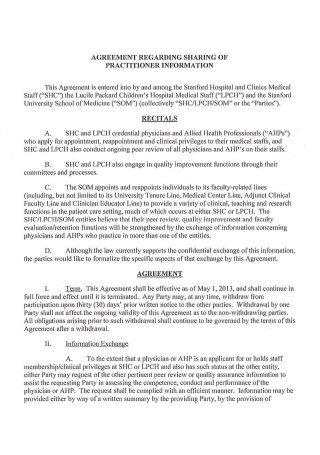
Sharing Agreement Example
download now -
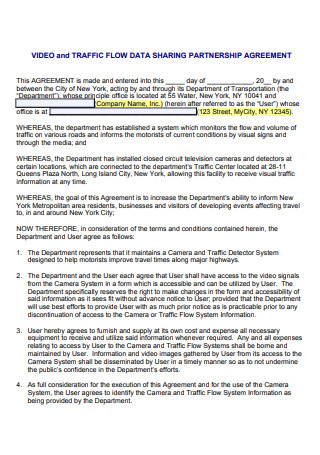
Data Sharing Partnership Agreement
download now -
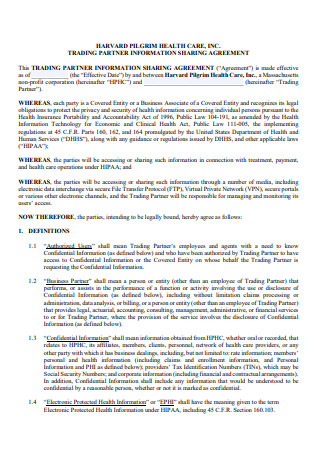
Trading Partner Information Sharing Agreement
download now -
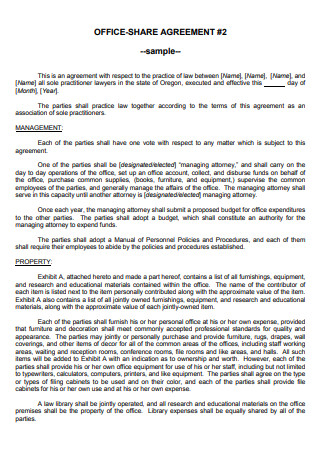
Office Sharing Agreement
download now -
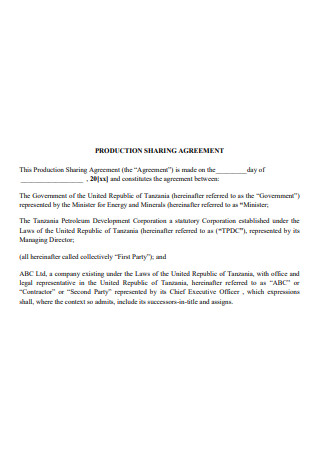
Production Sharing Agreement
download now -
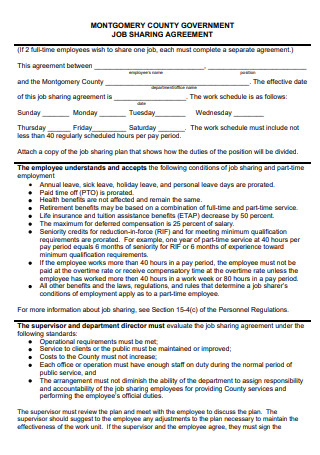
Job Sharing Agreement
download now -
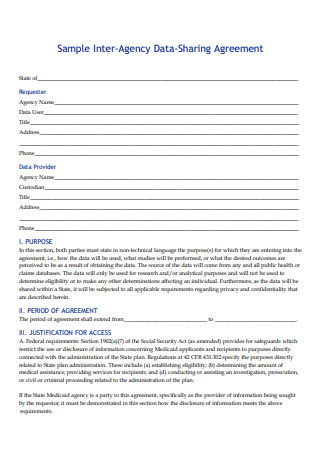
Sample Inter Agency Data Sharing Agreement
download now -
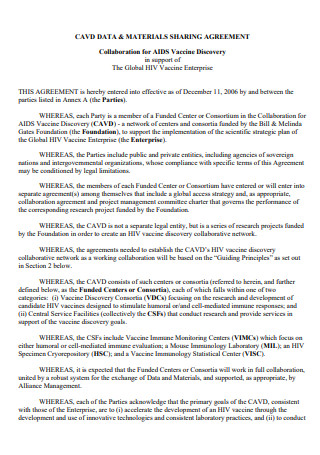
Data and Materials Sharing Agreement
download now -
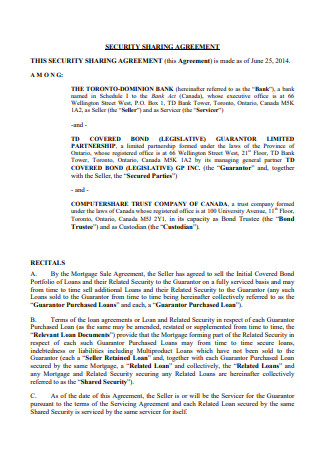
Security Sharing Agreement
download now -
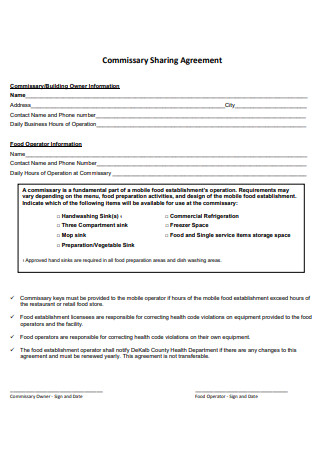
Commissary Sharing Agreement
download now -
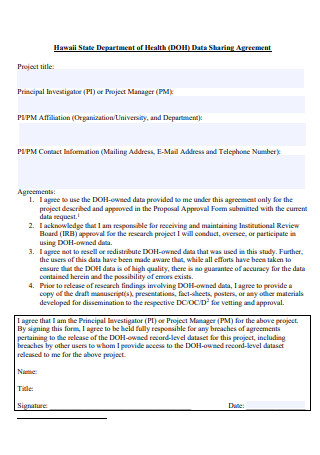
Department of Health Data Sharing Agreement
download now -
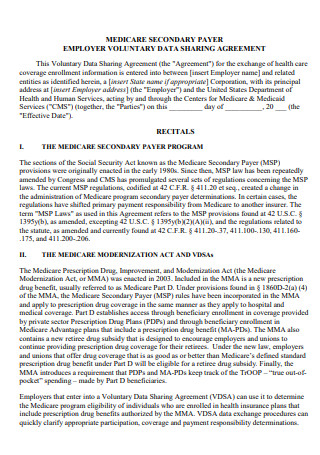
Employer Voluntary Data Sharing Agreement
download now -
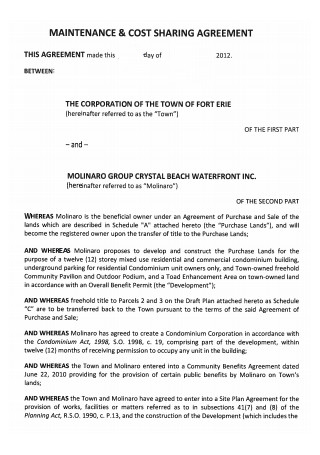
Maintenance and Cost Sharing Agreement
download now -
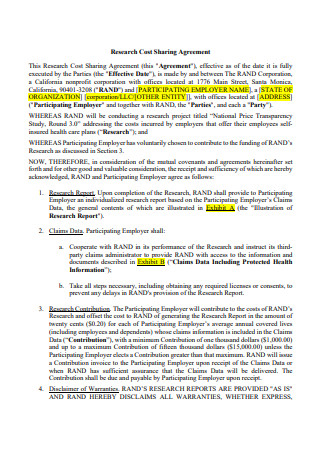
Research Cost Sharing Agreement
download now -
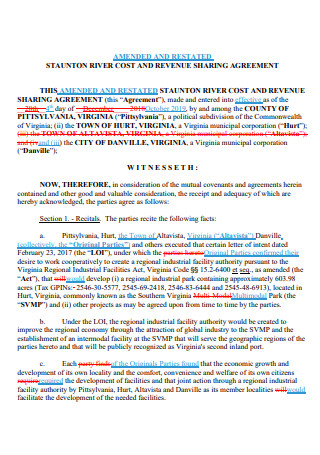
Cost and Revenue Sharing Agreement
download now -
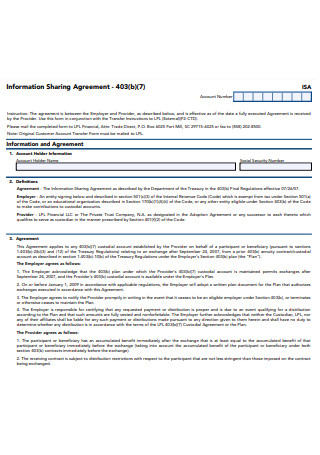
Information Sharing Agreement
download now -
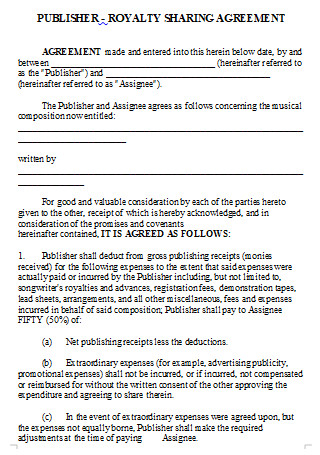
Royalty Sharing Agreement
download now
What Is a Sharing Agreement?
A sharing agreement is a legally binding and formal agreement that correctly captures and categorizes shared data while also defining how it will be used. Sharing agreements serve two purposes: first, they protect the entity that gives the information by providing data misuse protections; and second, they protect the business that receives the information by providing data sharing agreements. First and foremost, it helps to avoid instances of miscommunication between a supplier and an agency responsible for gathering knowledge by properly addressing its use with both parties. Prior to beginning the Sharing process, the supplier and the sharer meet in person or by phone to discuss data sharing and data usage concerns that may arise. The approach establishes a Collaborative Arrangement, which will be included in the data-sharing agreement as part of the data-sharing agreement. Several stipulations pertaining to the sharing and distribution of information are included in the agreement. In addition, it is recommended that you avoid engaging in these actions that attempt to divulge personal or private information.
Other templates are available on our website, and you can use them whenever you need them. They are as follows: shared services agreement, supply agreement, case report, service delivery plan, internal audit checklist, land sale agreement, share purchase agreement, security incident report, commercial lease proposal, work accident report, and other similar templates are available.
Elements of a Sharing Agreement
A sharing agreement focuses on different elements of information sharing between two entities, a provider and a sharer, and is composed of several clauses. You will discover general aspects of a sharing agreement, as well as their individual explanations, further down on this page. Individually, each sharing agreement is distinct and incorporates some, if not all, of the components listed below. Each of the following items must be identified by researchers or data suppliers before the agreement can be signed.
How to Write a Sharing Agreement
Administrative data research necessitates a close working connection between the researchers and the organization in charge of the data. Here is a step-by-step method to successfully working with a governmental agency.
-
1. Research Issues Necessitate the Collection of Relevant Data
Identifying the data pieces required to answer research questions is the first stage in creating a data-sharing agreement. The data is scattered over several databases, therefore it’s a good idea to compile a list of the necessary information. When combining data sets, the parties involved must determine who is in charge of starting the process and how the merger will be completed. Consult with an agency employee who has had past expertise in data retrieval and data gathering.
-
2. Define Organizations in Charge of Data Management and Ownership
To answer research questions, researchers must determine which agency or entity has and administers the data pieces. There may be several criteria for safeguarding data sets if it is held by more than one institution. The principal researcher must create numerous data-sharing agreements for local authorities if the data they need are located there.
-
3. Indicate Who Is in Charge of Drafting, Reviewing, and Approving the Agreement for the Use of Resources
Researchers and employees of the agency work together to create, evaluate, sign, and accept the agreement’s terms and conditions. You can identify and resolve Legal Concerns and Provisions if the organization has legal experts that can assist in the drafting process. To design and implement the agreement, researchers and agency employees need to establish a time frame that everyone can follow.
-
4. The Sharing Agreement should be Drafted
Use a pre-existing form for a data-sharing agreement as a starting point. Follow the template and procedures provided by the state agency in charge of storing the data components. The state agency should draft the data sharing agreement if one does not already exist. Using data-sharing agreements from those who have used them before is a good idea. The legal department can also be consulted everyday to identify and address concerns. Keep an eye on federal laws governing the use of administrative data, because they might change at any time.
-
5. Distribute Copies of the Proposed Contract
Data-sharing agreements must be reviewed by both parties after the first draft is completed. The researchers and the agency must make any required changes to the agreement if any queries or issues emerge. Set up a meeting to talk about any problems you’re encountering.
-
6. Complete the Agreement and Collect Approval Signatures
After all questions, objections, and amendments have been resolved, the agreement must be signed by authorized representatives from both parties.
Sharing through platforms refer to the capacity to exchange streams of data in a variety of forms, applications, and locations with other parties. A variety of topics are covered on a number of different servers around the network, with the ability to alter its material restricted by software locking measures in place. Sharing has become increasingly important as new technologies have been developed and deployed.
FAQs
Is a sharing agreement contract legally binding?
As long as the data usage, protection, and confidentiality security standards are satisfied, data-sharing agreements do not need to be legally enforceable.
Without consent, when can you share data?
Personal data collection does not always require consent. It can only be done when businesses have legitimate motives to use data.
Why share data?
Data sharing makes data available on demand. However, data sharing improves discoverability, citability, and stability for both researchers and students.
Sharing takes time and effort to complete. Researchers must appreciate the importance of building trust with data providers. For the agreement to be successful, they must create lists, cite research topics, and contact an expert. The data provider’s rules and provisions should be followed to the letter if an agency supplies a template. The item above offers over 50 sharing agreement examples for usage and download.
